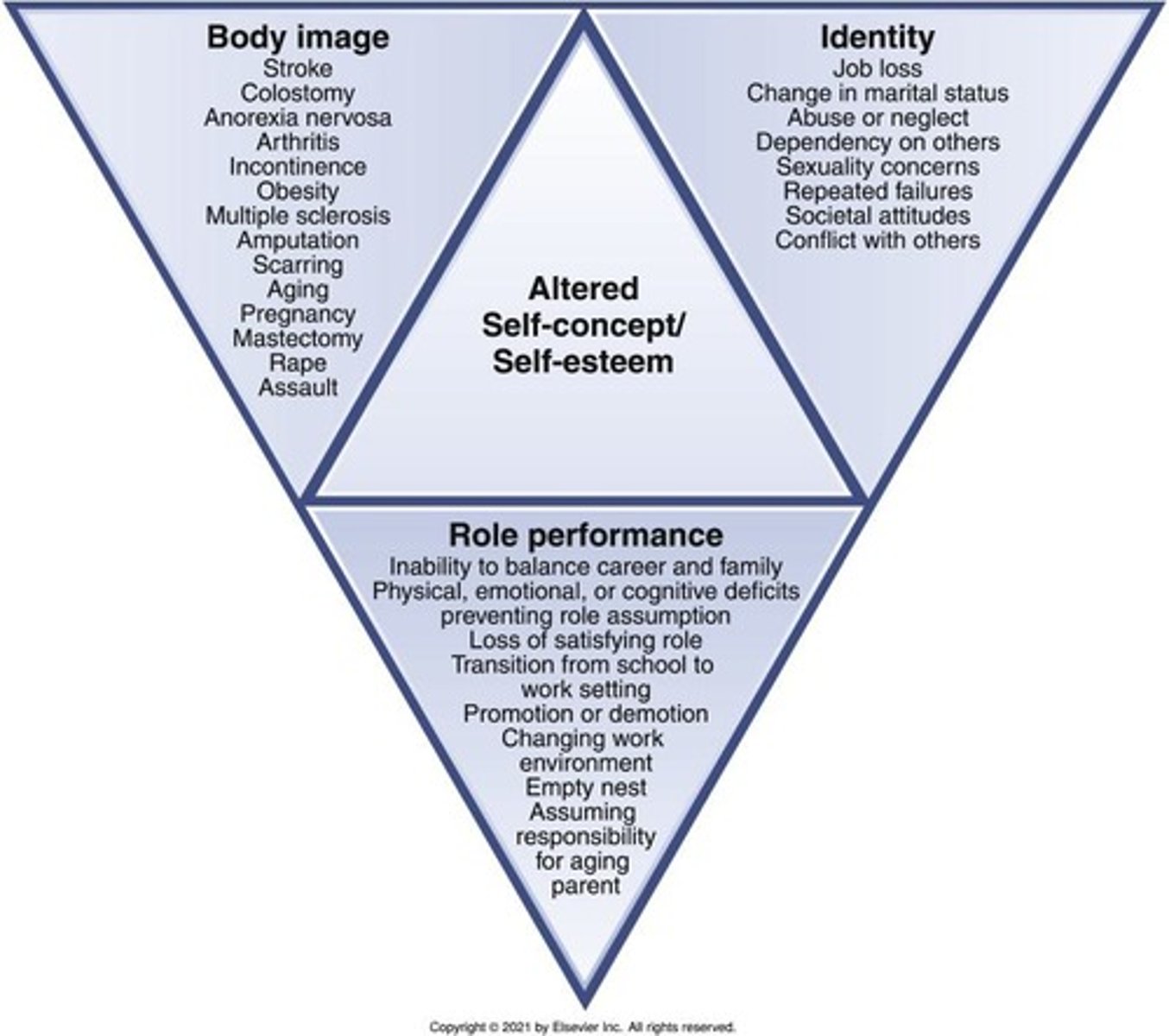Self-Concept ppt
1/22
There's no tags or description
Looks like no tags are added yet.
Name | Mastery | Learn | Test | Matching | Spaced | Call with Kai |
|---|
No analytics yet
Send a link to your students to track their progress
23 Terms
Self-concept
View of oneself, develops throughout life and shaped by experiences, culture, and relationships, affecting perception of health.
Factors influencing the development of self-concept
Sense of competency, perceived reactions of others to one's body, personal and professional relationships, academic and employment-related identity, personality characteristics, socioeconomic status, mastery of prior and new experiences, cultural identity.

Components of Self-Concept
Identity, body image, role performance, self-esteem.
Identity stressors
Factors that create stress related to one's identity.
Body image stressors
Factors that create stress related to one's body image.
Role performance stressors
Factors that create stress related to one's performance in roles.
Role concept
The understanding of one's roles in various contexts.
Sick role
A social role that individuals assume when they are ill.
Role ambiguity
Uncertainty about the expectations and responsibilities associated with a role.
Role strain
Difficulty in fulfilling the demands of a role.
Role overload
Being overwhelmed by the responsibilities of multiple roles.
Self-esteem stressors
Factors that create stress related to one's self-esteem.
Family effect on self-concept development
Children develop sense of self from family caregivers and gain accepted norms from family.
Parental support
High parental support and parental monitoring are related to greater self-esteem and lower risk behaviors.
Positive communication
Fosters self-esteem and well-being in adolescence.
Nurse's effect on patient's self-concept
Nurses need to remain aware of their own feelings, ideas, values, expectations, and judgments.
Building a trusting relationship
Convey genuine interest and acceptance to foster a trusting relationship.
Reflection in nursing
Promotes empathetic, unbiased care.
Assessment in nursing process
Ensure care is patient-centered, gather comprehensive data, observe patient nonverbal behavior.
Nursing diagnosis examples
Disturbed Personal Identity, Impaired Role Performance, Situational Low Self-Esteem, Chronic Low Self-Esteem.
Planning and outcomes identification
Setting priorities and teamwork in the nursing process.
Critical thinking in nursing
Sound clinical judgment in applying critical thinking during the nursing process ensures safe and appropriate care.
Patient-centered care
Care that is tailored to the individual needs and preferences of the patient.